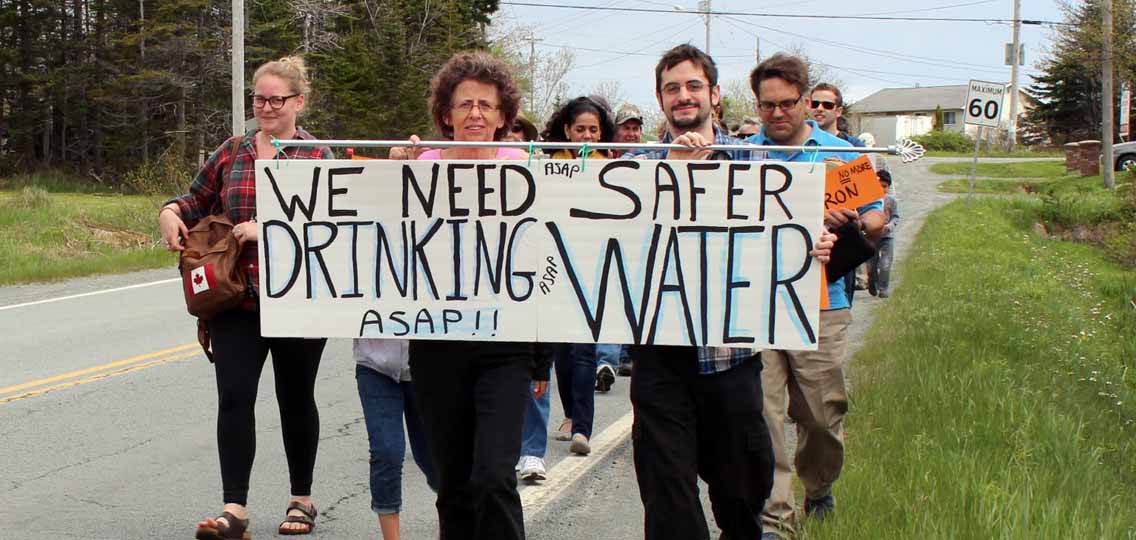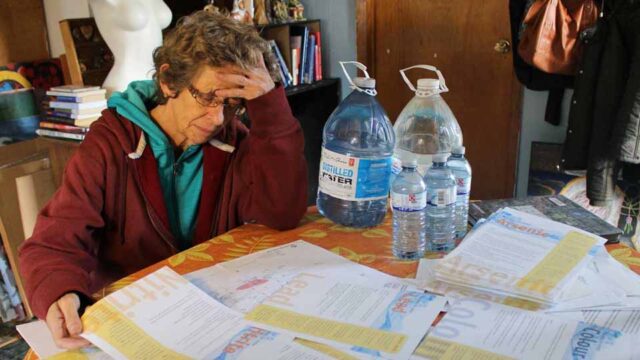Residents of Harrietsfield, N.S. headed to court again to fight for clean, safe water for their community
There are routinely more than 1,500 drinking water advisories in place at any given time in Canada. With a number that high, it’s safe to say that not all Canadians are afforded the same easy access to clean, safe and acceptable quality drinking water that some of us are accustomed to.
This reality is very real for some residents in Harrietsfield, N.S.: In 2003 they learned that groundwater in their community had been impacted by toxic chemicals from a now-defunct recycling facility. Without access to clean, safe drinking water of acceptable quality in their homes, daily tasks like brushing teeth and washing dishes are a struggle for many in the community.
When my colleagues and I started working on this case in 2013, we helped Harrietsfield residents argue successfully in court that a clean-up order requiring former owners and operators of the contaminated site to engage in monitoring and planning activities should be upheld. Unfortunately that wasn’t the end of the story.
Many of the steps required to remediate the site have yet to be taken, and residents’ concerns about their water remain — with good reason. In July 2015, the provincial government sent letters to impacted residents indicating that some wells still didn’t meet Canadian Drinking Water Health Guidelines and contained unsafe levels of substances like uranium, lead and arsenic. Letters sent to the same residents in February of 2016 contained similar results.
And now, adding to the mountain of obstacles the community already faces, some of those instructed to remediate the site threw another wrench into the works when they appealed the clean-up orders issued at the end of February.
That’s why we’re stepping in again to help residents of Harrietsfield.
Working along with lawyers at East Coast Environmental Law, we’ve secured intervenor status for community members Angela Zwicker, Marlene Brown and Melissa King in the two new appeal proceedings. In the coming months we will help them defend their community’s right to safe, clean water of acceptable quality in the Nova Scotia Supreme Court.
We should all be able to drink the water that flows through the taps in our homes without fear for our health and safety. It’s time that contaminated site gets cleaned up — it’s that simple. Our clients have been forced to live in fear of their water for too long.
In the meantime, we’re also working with Harrietsfield residents to implore all three levels of government to work with the community to ensure that it has access to drinking water that is clean, safe, and of an acceptable quality. We also invited Ecojustice supporters like you participate — and you sprang into action!
A letter signed by dozens of residents was also sent to the Mayor of Halifax and the Minister of Environment last month calling on them to take action to help residents impacted by contamination.
We were given a glimmer of hope when we saw the necessary players meet to discuss the water issues affecting residents in Harrietsfield and what they can do fix them. We have yet to hear anything further on their plans to resolve the issue, but we remain encouraged by another legislative development.
In early May, an Environmental Bill of Rights was introduced in the Nova Scotia legislature. While the bill isn’t perfect, it recognizes a broad right to a “healthful environment” and is another signal of the ever-growing strength of the environmental rights movement in Canada.
If made law, the bill will give Harrietsfield residents important legal tools they need to enforce their right to a healthy environment and protect their drinking water. For example, the bill includes provisions that would increase access to information and opportunities to participate in environmental decision-making, and allow residents to sue over environmental rights violations.
We are optimistic that this bill will be the first of many steps toward ensuring Harrietsfield residents and people across Nova Scotia have their basic human right to a healthy environment and clean drinking water recognized, respected, and fulfilled.


